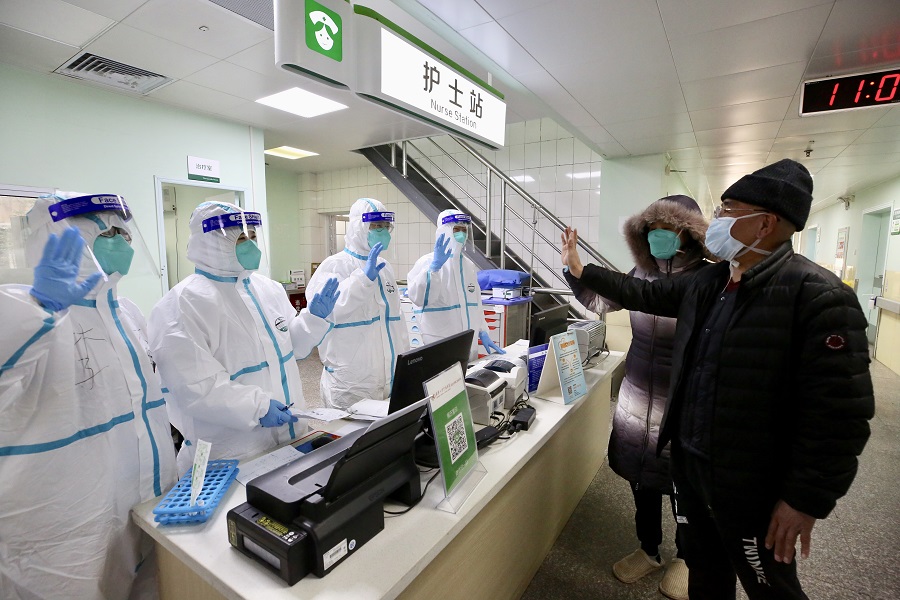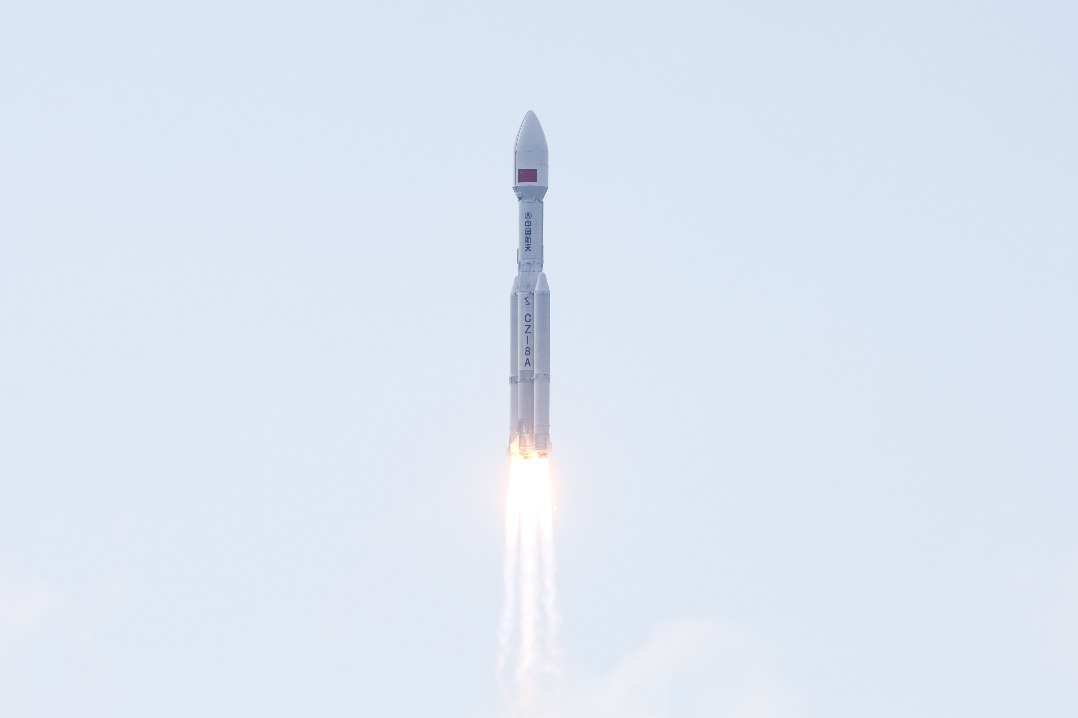ECMO machine gives sick patients hope for survival


A seriously-ill patient in Wuhan, Hubei province, has recovered from the novel coronavirus infection with the help of a life-support machine that temporarily replaces his heart and lung function-the last hope for people stricken with the potentially fatal virus.
The machine is known as ECMO, an acronym for extracorporeal membrane oxygenation. It bypasses the damaged lungs and pumps oxygen into the blood from outside the body, thus providing respite for the lungs to recover while stabilizing the patient's condition.
On Jan 28, the 53-year-old patient, surnamed Hu, was discharged from Zhongnan Hospital of Wuhan University after testing negative for the virus twice and showing no symptoms, according to hospital officials.
Since the novel coronavirus started spreading across China in late December, he is the first patient in Hubei province-the center of the outbreak-to come off ECMO alive and ultimately recover from the contagion that pushed him to the brink of death.
Two other patients infected with the virus are undergoing ECMO treatment at the hospital, including a 72-year-old male who is "out of danger". Another case continued to decline after being hooked up to the machine and eventually died, said Peng Zhiyong, head of the hospital's intensive care unit.
Elsewhere in China, a patient with worsening symptoms in Zhuhai, Guangdong province, has reportedly fared better after being put on ECMO on Jan 26, local newspaper Southern Metropolis Daily reported. In Wuhan, a 61-year-old male died on Jan 9 after nine days on ECMO, according to the National Health Commission.
"ECMO is the last resort for critically ill coronavirus patients," Peng said. "Though it does not ensure reversal of condition or recovery, ECMO, at the very least, prevents moribund patients from dying of oxygen deficiency in the short term and thus increases chances of survival."
Medical experts in China have largely agreed that the novel coronavirus is not as lethal as SARS, which killed over 700 worldwide about 17 years ago. Applications of advanced medical procedures like ECMO could further push down the mortality rate. "About 70 percent of patients sent to the hospital exhibit minor symptoms, and most can gradually recover with oxygen delivery through a nasal cannula, noninvasive ventilator support and some antiviral drugs," Peng said.
For those in serious condition, invasive mechanical ventilation will be implemented. The procedure involves using a penetrating instrument via the mouth or chest to serve as an artificial airway.
In the case of Hu, when he was transferred on Jan 17 to Zhongnan Hospital from his hometown Huanggang city-about 85 kilometers east of Wuhan-his lungs barely functioned, making it impossible to breathe. He was taken off the machine around Jan 22 when his lung infections subsided and he regained the ability to breathe adequately.
According to pulmonary specialists at the hospital, the use of ECMO has so far only targeted a small proportion of patients, and the elderly above 70 years old are often excluded because their bodies are too emaciated to endure the drastic procedure.
Xia Jian, deputy head of the ICU, said "critically ill patients among those in severe condition" are likely to access the treatment at the hospital.
The emerging role of ECMO in treating critical cases of the novel coronavirus has come in tandem with a widely-accepted principle that urges reduced use of hormone treatment. Both therapies are aimed at tackling life-threatening symptoms in viral pneumonia patients.
Aggressive hormone treatment, used on severe cases during the deadly SARS outbreak, has been questioned for its devastating aftereffects, mainly bone thinning, pulmonary fibrosis and depression.
Zhao Jianping, head of the respiratory and critical care unit at Union Hospital of Tongji Medical College in Wuhan, told China National Radio that clinical experts have reached the consensus that the use of hormones will be reduced when treating novel coronavirus patients compared to treating SARS.
"Due to a lack of knowledge, the amount of hormones used on SARS patients were quite heavy for a prolonged period. Now, we have agreed to avoid using excessive amounts of hormones," he was quoted as saying.
As the number of confirmed cases of the novel coronavirus and that of severe cases are on the rise, demands for ECMO treatment appear to have outpaced the hospital's capability. "In an ideal situation, I would like to add three to five more ECMO machines to the existing tally," said Peng, the director of Zhongnan Hospital's ICU. There are three ECMO machines at the hospital.
The shortage of medical workers capable of managing the cumbersome machine and closely monitoring patients on ECMO is even more imminent. "To take care of one patient hooked to the machine requires a team of five to six trained professionals working around the clock, shouldering a multitude of tasks to stave off life-threatening complications such as profuse bleeding," he said. "Whatever is available at the hospital is now fully revved up to rescue patients, but calls kept coming in, inquiring about putting patients from other hospitals on ECMO at Zhongnan Hospital."
Xu Xiaomin in Shanghai contri-buted to this story.
- Scientific community, netizens pay tribute to late Nobel laureate Yang Chen-Ning
- Ancient Confucian ideas inspire today
- US professor eyes retirement in Wuyi Mountains
- Guyuan promotion conference enhances Ningxia and Jiangsu ties
- ECNU's intl student program benefits mother and daughter from Vietnam
- Digital creativity shines at intl copyright expo in Qingdao




































